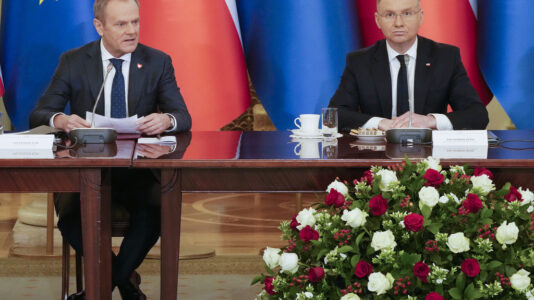Poland’s Confederation party has formally notified the prosecutor’s office of a potential crime involving diplomatic treason by Polish Prime Minister Donald Tusk. This announcement follows the European Commission’s confirmation on May 7 that Poland has recognized the primacy of EU law over its national legislation, as part of concluding proceedings under Article 7 of the Treaty on the European Union.
During a press conference, Confederation spokesman Tomasz Grabarczyk highlighted the European Commission’s statement, which acknowledged that “Poland has launched a series of legislative and non-legislative measures to address the concerns on independence of the justice system, it has recognised the primacy of EU law and is committed to implementing all the judgment of the Court of Justice of the European Union and the European Court of Human Rights related to rule of law including judicial independence.”
“For us, and for all rational-minded Poles, this simply means that Donald Tusk, as the prime minister of the Republic of Poland, has committed an act of diplomatic treason. Therefore, we are notifying the authorities of the possibility that a crime of diplomatic treason has been committed,” Grabarczyk stated.
He cited Article 129 of the Polish penal code, which provides that anyone authorized to represent Poland in dealings with foreign governments or organizations and acts against the interests of Poland could face a prison sentence ranging from one to ten years.
Krystian Kamiński, a former Confederation MP and candidate for the European Parliament, argued that “all countries in Europe confirm that national law stands above EU regulations.” He stressed that if Tusk’s government truly recognized the supremacy of EU law over Polish law, the prosecutor’s office should intervene.
Kamiński emphasized that Tusk’s action not only violates the Polish constitution but fundamentally undermines the rulings of the Constitutional Tribunal, including those from earlier years, which clearly state that the Polish constitution is supreme.
Kamiński also noted that when Poland joined the EU, it was understood that some competencies would be transferred to the EU, but it was never agreed that EU law would be superior to Polish legislation.
“It would be completely absurd and inconsistent with the practice in other countries. No other country operates like this,” he added, urging the prosecutor’s office to take the complaint seriously and determine whether a crime has occurred.






